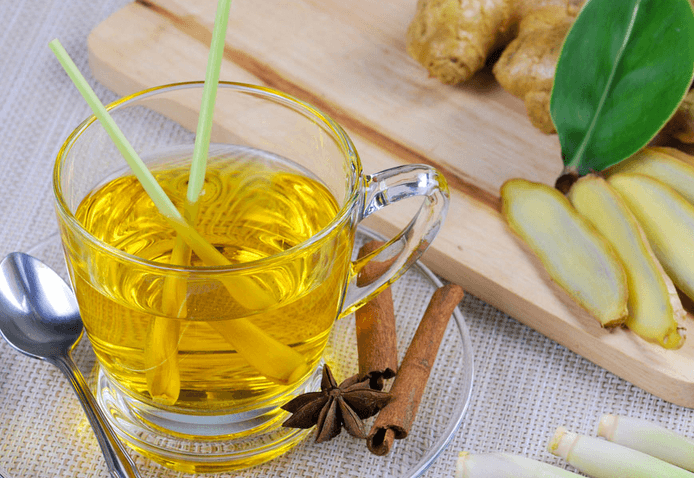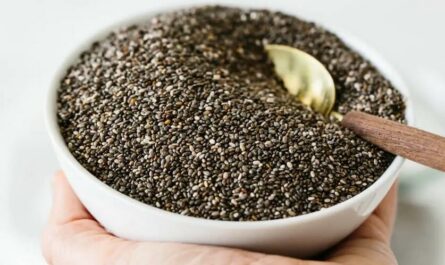Stomach aches can be incredibly uncomfortable and disruptive to our daily lives. Whether it’s caused by indigestion, bloating, or other digestive issues, finding relief is often a top priority. While there are many over-the-counter medications available, some people prefer natural remedies. In this article, we will explore the 16 best teas for stomach aches. Additionally, we will provide tips on how to properly brew and enjoy these teas to maximize their properties.

Benefits of Tea for Stomach Aches
Tea has been used for centuries as a natural remedy for various ailments, including stomach aches. There are several reasons why tea can be effective in soothing and alleviating stomach discomfort.
1. Soothing properties: Many herbal teas, such as chamomile and peppermint, have soothing effects on the stomach lining. They can help to calm inflammation, reduce irritation, and alleviate stomach pain.
2. Digestive aid: Certain teas, like ginger and fennel, have been used for centuries to aid digestion. They can help stimulate the production of digestive enzymes, improve intestinal muscle contractions, and relieve symptoms like bloating, gas, and indigestion.
3. Anti-inflammatory effects: Inflammation in the gastrointestinal tract can cause stomach aches. Tea, especially herbal varieties rich in antioxidants, can help promote a healthy digestive system.
4. Muscle relaxation: Some teas, including chamomile and lemon balm, have muscle-relaxing properties. They can help ease stomach spasms and cramps, providing relief from abdominal pain.
5. Hydration: Staying hydrated is crucial for maintaining a healthy digestive system. Drinking tea, whether hot or iced, can contribute to your daily fluid intake and help prevent dehydration. This can exacerbate stomach discomfort.
6. Natural remedy: Many people prefer using natural remedies for stomach aches rather than relying solely on medications. Tea offers a gentle and natural approach to relieving stomach issues, with minimal side effects.
7. Stress relief: Stress and anxiety can often contribute to stomach aches. Some herbal teas, such as chamomile and lavender, have calming properties that can help reduce stress levels and promote relaxation, indirectly alleviating stomach discomfort.
16 Best Teas for Stomach Aches
1. Ginger Tea: The Spicy Soother
Ginger is a time-honored remedy for nausea, indigestion, and general stomach discomfort. This knobby root contains compounds called gingerols.
It can help reduce inflammation and relax the muscles lining the intestines, providing relief from cramping and spasms. Whether you brew it fresh or opt for a ginger tea bag, this spicy, warming beverage is a go-to for many when tummy troubles strike.
How to Brew: For fresh ginger tea, grate or slice a 2-inch piece of ginger root and steep it in hot water for 5-10 minutes. You can add a squeeze of lemon or a touch of honey to taste. If using tea bags, simply steep according to the package instructions.

2. Peppermint Tea: The Cooling Calmer
Peppermint’s cooling menthol flavor makes it a refreshing choice for soothing stomach aches. This herb is an antispasmodic. This means it can help relax the muscles of the digestive tract and ease cramping. Peppermint tea is also thought to improve bile flow, which can aid in digestion and relieve bloating and gas.
How to Brew: Steep 1-2 teaspoons of dried peppermint leaves or a peppermint tea bag in hot water for 5-7 minutes. For an extra cooling boost, try adding a few fresh mint leaves or a slice of lemon.
Expert Tip: “Peppermint tea is a fantastic choice for those dealing with irritable bowel syndrome (IBS) or other digestive issues involving cramping and spasms,” says Dr. Sarah, a naturopathic physician. “Its antispasmodic properties can help provide relief from discomfort and promote better digestion.”
3. Chamomile Tea: The Gentle Soother
Chamomile is a classic choice for relaxation, but did you know it can also calm an upset stomach? This gentle, floral tea contains anti-inflammatory properties that can soothe digestive discomfort. Chamomile is also an antispasmodic. This makes it a great option for relieving cramping and gas pains.
How to Brew: You can steep 1-2 teaspoons of dried chamomile flowers or a chamomile tea bag in hot water for 5-7 minutes. For a touch of sweetness, you can also add a drizzle of honey or a slice of lemon.
4. Fennel Tea: The Licorice-Flavored Lifesaver
Fennel’s licorice-like flavor might not be for everyone, but this herb is a powerhouse when it comes to digestive support.
Fennel seeds can help relax the smooth muscles of the gastrointestinal tract, easing spasms and cramping. This tea can also help reduce gas and bloating. It is a great choice for general stomach discomfort.
How to Brew: Steep 1-2 teaspoons of fennel seeds in hot water for 5-10 minutes. You can add a touch of honey or lemon to balance the licorice flavor.
5. Marshmallow Root Tea: The Soothing Protector
Don’t let the name fool you – marshmallow root tea has nothing to do with the fluffy, sugary treat. This herb is packed with mucilage, a substance that can coat and soothe the lining of the digestive tract.
Marshmallow root tea is often recommended for those with inflammatory bowel conditions, but it can also provide relief from general stomach aches and indigestion.
How to Brew: Steep 1-2 teaspoons of dried marshmallow root in hot water for 5-10 minutes. You can add a touch of honey or lemon for flavor.

6. Licorice Root Tea: The Acid-Taming Ally
Licorice root has been used in traditional medicine for centuries, and good reason. This herb contains compounds that can help reduce inflammation in the digestive tract.
Licorice root tea is often recommended for those with acid reflux or gastritis, but it can also provide relief from general stomach discomfort.
How to Brew: Steep 1-2 teaspoons of dried licorice root in hot water for 5-10 minutes. You can also add a touch of honey or lemon to balance the flavor.
Expert Tip: “Licorice root is a powerful anti-inflammatory and demulcent herb. This makes it an excellent choice for those dealing with acid reflux, gastritis, or other inflammatory conditions of the digestive tract,” says Dr. Sarah.”
7. Slippery Elm Tea: The Gentle Protector
Slippery elm is another herb that’s rich in mucilage. So It is a soothing choice for irritated digestive tracts. This tea can help coat and protect the lining of the stomach and intestines. This can provide relief from conditions like gastritis, ulcers, and general stomach aches.
How to Brew: Mix 1-2 teaspoons of slippery elm powder with a small amount of cold water to form a paste. Then, add hot water and let it steep for 5-10 minutes.
8. Meadowsweet Tea: The Aspirin Alternative
Meadowsweet is an herb that’s closely related to aspirin, and it shares some of the same anti-inflammatory properties. This tea can help soothe stomach aches caused by inflammation or irritation in the digestive tract.
Meadowsweet has a slightly astringent flavor that some find appealing, while others prefer to blend it with other herbs for a more palatable taste.
How to Brew: Steep 1-2 teaspoons of dried meadowsweet in hot water for 5-10 minutes. You can add a touch of honey or lemon to balance the flavor.
Expert Tip: “Meadowsweet tea is an excellent natural alternative to over-the-counter anti-inflammatory medications for those dealing with stomach issues.
Its anti-inflammatory properties can help reduce swelling and discomfort in the digestive tract, without the potential side effects of traditional NSAIDs. ” – Dr. Michael, Naturopathic Physician
9. Catnip Tea: The Feline-Approved Soother
You might know catnip as a feline favorite, but this herb has been used for centuries to treat a variety of human ailments, including stomach aches.
Catnip tea is thought to have antispasmodic and anti-inflammatory properties. Its antispasmodic properties can help relax the muscles of the digestive tract, easing cramping and spasms. Its anti-inflammatory compounds can help soothe inflammation and irritation.
How to Brew: Steep 1-2 teaspoons of dried catnip in hot water for 5-10 minutes. You can add a touch of honey or lemon for flavor.

10. Turmeric Tea: The Golden Remedy
Turmeric is a spice that’s been used in traditional Indian medicine for thousands of years, and it’s no wonder why. This vibrant root is packed with curcumin, a compound with powerful anti-inflammatory properties.
Turmeric tea can help soothe stomach aches caused by inflammation or irritation in the digestive tract. It has a warm, slightly bitter flavor that many find appealing.
How to Brew: Grate or slice a 1-inch piece of fresh turmeric root and steep it in hot water for 5-10 minutes. You can add a touch of honey or lemon to balance the flavor.
Expert Tip: Turmeric tea is an excellent choice for those dealing with conditions like gastritis, ulcers, or inflammatory bowel disease.
11. Dandelion Tea: The Humble Herbal Helper
Dandelion might be a pesky weed in your garden, but this humble plant has some impressive digestive benefits. This tea can stimulate the production of bile to help relieve constipation. It’s also a mild diuretic, which can help reduce bloating and water retention.
How to Brew: Steep 1-2 teaspoons of dried dandelion root or leaves in hot water for 5-10 minutes. You can add a touch of honey or lemon for flavor.
Expert Tip: “Dandelion tea is a wonderful choice for those dealing with sluggish digestion or bloating,” says Dr. Sarah, a naturopathic doctor. “Its ability to stimulate bile production can help break down fats and keep things moving smoothly through the digestive tract. ”
12. Lemon Balm Tea: The Minty Soother
Lemon balm is a member of the mint family, and it shares some of the same soothing properties. This herb is thought to have antispasmodic and anti-inflammatory effects. This makes it a great choice for relieving stomach aches caused by cramping or inflammation.
How to Brew: Steep 1-2 teaspoons of dried lemon balm leaves in hot water for 5-10 minutes. You can add a touch of honey or lemon for extra flavor.
Expert Tip: “Lemon balm is a wonderful herb for digestive issues, particularly those involving spasms and cramping,” says Dr. Michael, a naturopathic physician.
“Its antispasmodic properties can help relax the muscles of the digestive tract, easing discomfort and promoting better digestion. Additionally, its anti-inflammatory compounds can help soothe inflammation and irritation in the gut.”
13. Artichoke Leaf Tea: The Unexpected Digestive Aid
Artichoke might not be the first thing that comes to mind, but this vegetable has some impressive digestive benefits.
This tea can help stimulate the production of bile, which can aid in digestion and help relieve bloating and gas. It also contains compounds that may help reduce inflammation in the digestive tract.
How to Brew: Steep 1-2 teaspoons of dried artichoke leaves in hot water for 5-10 minutes. You can add a touch of honey or lemon for flavor.
Expert Tip: “Artichoke leaf tea is an excellent choice for those dealing with digestive issues related to poor bile flow or inflammation,” says Dr. Emily, a naturopathic doctor. “Its ability to stimulate bile production can aid in the breakdown of fats and promote better digestion. Its anti-inflammatory compounds can also help soothe irritation in the gut. ”

14. Milk Thistle Tea: The Liver-Loving Soother
Milk thistle is an herb that’s best known for its liver-supporting properties, but it can also provide relief from stomach aches. This tea is thought to have anti-inflammatory effects, which can help soothe irritation in the digestive tract.
Additionally, its ability to support liver function can indirectly aid in digestion. Because the liver plays a crucial role in the production of bile and other digestive enzymes.”
How to Brew: Steep 1-2 teaspoons of dried milk thistle seeds or leaves in hot water for 5-10 minutes. You can add a touch of honey or lemon to balance the flavor.
15. Calendula Tea: The Sunny Soother
Calendula is a bright, cheerful flower that’s more than just a pretty face. This herb has been used for centuries to treat a variety of ailments, including stomach aches.
Calendula tea is thought to have anti-inflammatory and antispasmodic properties. This makes it a great choice for relieving cramping, bloating, and general digestive discomfort.
How to Brew: Steep 1-2 teaspoons of dried calendula petals in hot water for 5-10 minutes. You can add a touch of honey or lemon for flavor.
Expert Tip: “Its anti-inflammatory properties can help soothe irritation and inflammation in the gut.In addition, its antispasmodic effects can help relax the muscles of the digestive tract, easing cramping and discomfort. It’s a gentle yet effective remedy that’s often overlooked.”
16. Rose Hip Tea: The Vitamin C-Packed Protector
Rose hips are the fruit of the rose plant, and they’re packed with vitamin C and other antioxidants. It has anti-inflammatory properties. This can help soothe stomach aches caused by irritation or inflammation in the digestive tract. It also has a slightly tart, fruity flavor that many find appealing.
How to Brew: Steep 1-2 teaspoons of dried rose hips in hot water for 5-10 minutes. You can add a touch of honey or lemon for extra flavor.
Expert Tip: “Rose hip tea is a wonderful choice for those dealing with inflammation in the digestive tract,” says Dr. Emily, a naturopathic doctor. “Its high vitamin C content provides potent antioxidant and anti-inflammatory benefits that can help soothe irritation. ”
Conclusion
So there you have it – 16 delicious and soothing teas that can help ease your stomach woes. Whether you prefer a classic like ginger or peppermint, or you want to try something new, there’s a tea for you. So brew up a cup, sit back, and let these natural remedies provide gentle relief and promote overall digestive health. Cheers to a happy, healthy tummy!






